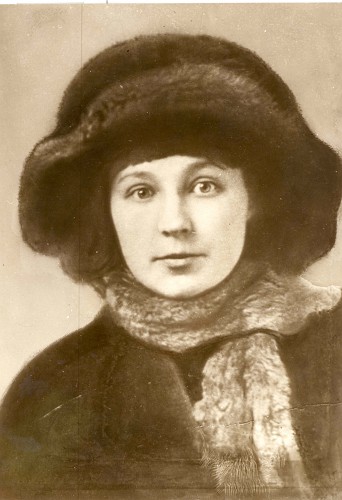The “scale of appraisal”: Woolf, Tsvetaeva, and Inspector Javert
Sunday, January 6th, 2013Last night, I finally made the trek to see Les Misérables with my daughter and her friend. The film has many nice touches – among them, Russell Crowe, as the solitary Inspector Javert, reviews the row of slaughtered boys the day after the 1832 uprising is quelled. Moved by the sight of the very young Gavroche in the macabre line-up of bodies, he gently pins one of his military medals on the dead child. Javert leaps to his death in the Seine a few scenes later. (My daughter sent me a youtube video of Crowe being interviewed about his interpretation of the role – it’s below.)
Although my memory of Victor Hugo‘s book has faded over the years, I don’t recall any account that has linked Javert’s suicide with these useless and unnecessary deaths, in addition to the inspector’s confusion at Jean Valjean’s unexpected act of mercy. But the connection with warfare is an obvious one – some producer or artist should have thought of it before now – and it brought me back to my post of a few days ago, discussing Virginia Woolf‘s last letter, before her own suicide. I had never connected her death with the German bombing of Britain, but her husband had.
According to Leonard Woolf, “319 days of headlong and yet slow-moving catastrophe” preceded her death in March 1941. Two of their homes were bombed in succession, and this may have triggered a recurrence of Virginia’s mental illness.
So it was, also, with Russian poet Marina Tsvetaeva, whose suicide was preceded by German attacks on the two cities she loved most, Paris and Prague. (I wrote about her final days for the Los Angeles Times here.)
Lydia Korneevna Chukovskaya related this August 1941 conversation, which took place in Chistopol in Tatarstan, the evacuation destination for many writers:
“Tell me, please,” here she came to a stop, stopping me also, “tell me, please, why do you think that it’s still worth living? Don’t you really understand what’s coming?”
“Worthwhile or not – I stopped debating that long ago. They arrested people close to me in ’37, and in ’38 they shot my husband. Of course, life’s not worth living for me, and in any case it doesn’t matter any more how and where I live. But I have a daughter.”
“But don’t you really understand that everything’s over? For you, for your daughter, and altogether.”
We turned onto my street.
“What do you mean – everything?” I asked.
“Altogether – everything!” She made a large circle in the air with the strange little bag she carried. “Well, Russia, for example!”
“And the Germans?”
“Yes, the Germans too.”
In her excellent book The Death of a Poet: The Last Days of Marina Tsvetaeva, author Irma Kudrova writes:
I’ll risk taking this thought to its conclusion. In Tsvetaeva’s eyes the catastrophe that was going on was worse than the nightmare of war. A disaster of global proportions was underway, swallowing Russia too. The dark forces of the world had incarnated into ‘nonhumans’; they held absolute power and were pitiless toward man. The swarm of Hitler’s army, which was swallowing the Russian land, was only one of the faces of triumphant evil. It seems to me that it was precisely this – and nothing less – that Marina Ivanovna [Tsvetaeva] was talking about on 26 August 1941, four days before her death.
She was speaking to the only person she had met since leaving Moscow in whom she could sense a person like herself. She spoke, at last, in her own voice, without caution. Because it was her scale of appraisal, her characteristic viewpoint about what was happening: “from the roof of the world,” as she wrote in one of her poems.








